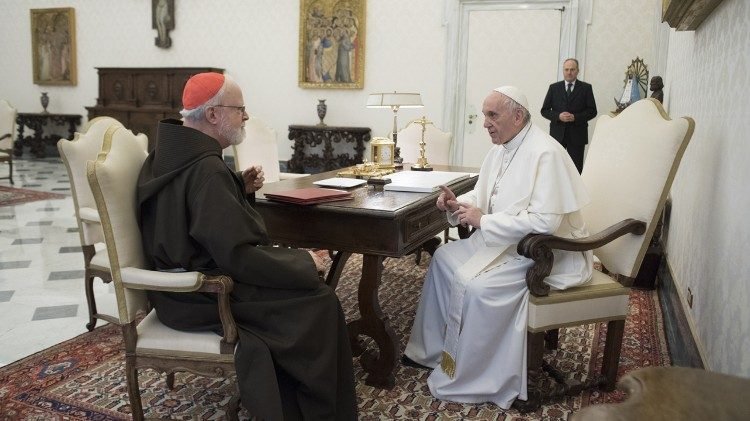In a statement released on Friday afternoon, Cardinal Sean O’Malley, Archbishop of Boston, and President of the Vatican Commission for the Protection of Minors, says he is grateful for the announcement that Pope Francis has appointed a commission to prepare for the February meeting on the protection of minors in the Church.
Who proposed the February meeting?
Cardinal O’Malley disclosed in the statement that the “proposal for” the February meeting “was developed by the Pontifical Commission for the Protection of Minors, was reviewed by the Council of Cardinals and subsequently accepted by the Holy Father”. He is both pleased that Pope Francis has called for the meeting and he says he looks forward to participating in it.
Role of the Pontifical Commission
The Cardinal explained that the Pontifical Commission for the Protection of Minors is an “advisory body to the Holy Father, making recommendations on best practices for the universal Church for education and prevention programs regarding the crime of sexual abuse of minors and vulnerable adults”. In view of this mission, he said that the Commission will be a resource for the committee in its work of preparing for the meeting in February. The Commission’s regularly hosts face to face meetings with survivors and newly appointed bishops, he said. This practice provided the Commission with the inspiration that “calling the bishops to Rome for a similar high-impact meeting would be very important in addressing the clergy abuse crisis globally”.
Commitment to zero tolerance
Cardinal O’Malley calls the meeting in February “a critical moment for the universal Church in addressing the sexual abuse crisis”. Diocese around the world will then be part of “developing a clear path forward” toward the implementation of the Church’s zero tolerance policy. He reiterated that the “support and pastoral care of survivors” is the Church’s first priority. He concluded his statement saying:
This is a life-long journey that is now part of the fabric of the Catholic family and requires a partnership between the laity and clergy in responding to the failures of episcopal leadership by holding bishops accountable for the crimes against children and vulnerable adults.



